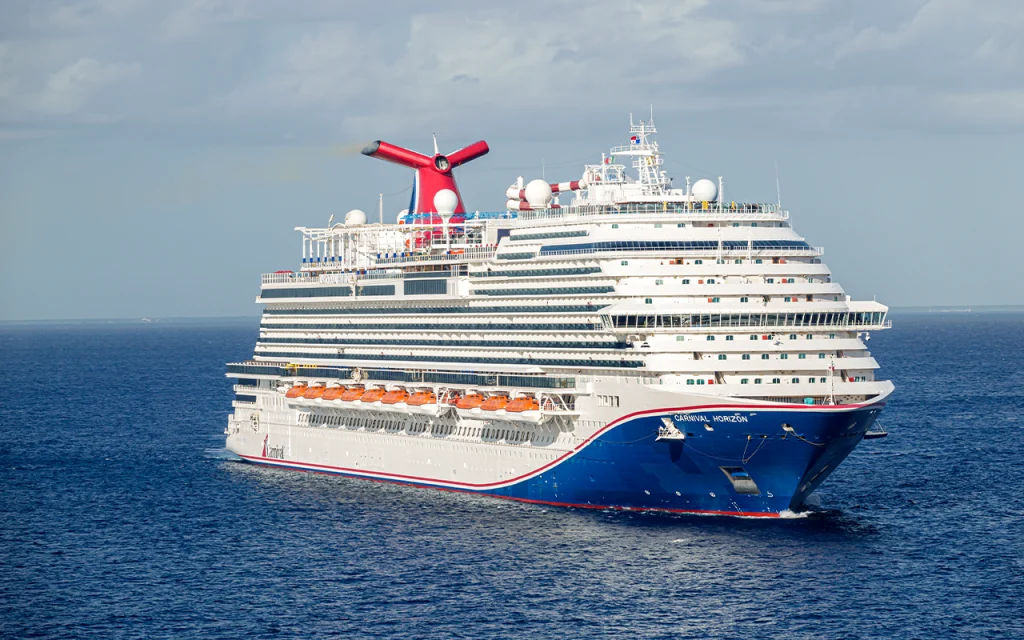FBI Investigates Mysterious Death Aboard Carnival Horizon Cruise Ship
The Complexities of Maritime Criminal Investigations
When a passenger died aboard the Carnival Horizon during its recent voyage, it triggered an immediate FBI investigation as the ship returned to Miami on November 8. According to former FBI special agent Nicole Parker, these cases fall under a particularly intricate area of law enforcement jurisdiction. “The FBI has jurisdiction to handle cases when a crime occurs in international waters,” Parker explained to Fox News Digital, highlighting how these investigations operate under special maritime jurisdiction laws. This jurisdiction typically activates when an incident occurs on a vessel that departed from a U.S. port, such as Miami, and the alleged crime takes place in international waters. The complexity of these cases stems from the overlapping jurisdictional considerations that arise when incidents occur beyond territorial boundaries.
Carnival’s Response and Ongoing Investigation
Carnival Cruise Line has acknowledged the situation and confirmed their cooperation with federal authorities. “The death of a guest traveling on the Carnival Horizon voyage that returned on Saturday morning, Nov. 8, is being investigated by the FBI,” the company stated. They further emphasized that while the matter remains under law enforcement jurisdiction, their primary focus has shifted to supporting the family of the deceased passenger. Details about the individual have not been publicly disclosed, and authorities have remained tight-lipped about the circumstances surrounding the death. The FBI has only confirmed that agents responded when the ship docked and that their investigation continues, without indicating whether foul play is suspected in the case.
The Framework for Maritime Criminal Jurisdiction
Parker, who spent significant time handling maritime cases during her FBI career, explained that legislation signed under the Obama administration established clearer protocols for handling certain crimes occurring on cruise ships. This framework grants the FBI primary jurisdiction over specific categories of criminal activity in international waters, particularly those involving vessels departing from or returning to U.S. ports. “The FBI has the first right of refusal for those incidents,” Parker noted, describing how cruise line security officers would contact her at all hours to report incidents, requiring her to make initial determinations about whether the Bureau would assume responsibility for the case.
Challenges in Investigating Crimes at Sea
Maritime investigations present unique challenges compared to land-based cases. When incidents occur in international waters, evidence collection becomes more complicated, witness statements must be secured quickly, and coordination between multiple agencies becomes essential. The transient nature of cruise ship environments—where most people aboard are temporary visitors from various countries—further complicates investigative efforts. Additionally, securing a potential crime scene becomes more difficult when that scene is a moving vessel with thousands of passengers and crew members. These factors make maritime investigations particularly demanding, requiring specialized knowledge and interagency cooperation to navigate successfully.
The Broader Context of Cruise Ship Safety
This incident highlights ongoing concerns about passenger safety in the cruise industry. While cruising remains statistically safe for the millions who enjoy vacations at sea annually, incidents like this underscore the importance of robust security measures and clear protocols for handling emergencies. Cruise lines have generally strengthened their security operations in recent years, with many employing former law enforcement professionals to lead their security teams and implementing sophisticated monitoring systems throughout their vessels. However, when serious incidents do occur, the remoteness of ships at sea can complicate immediate response efforts and subsequent investigations.
The Path Forward for Maritime Security
As this investigation continues, it serves as a reminder of the evolving nature of maritime security and law enforcement. The specialized jurisdiction that governs incidents like the one aboard the Carnival Horizon reflects broader efforts to ensure that crimes committed at sea don’t fall through jurisdictional cracks. Parker’s insights into the process highlight how these cases require coordinated responses between cruise companies, federal agencies, and sometimes international partners. While the specific circumstances of this passenger’s death remain under investigation, the case demonstrates the complex framework that exists to address criminal matters in international waters—a framework that continues to develop as cruise tourism grows and evolves in the global travel industry. As authorities proceed with their investigation, the focus remains on determining what happened aboard the Carnival Horizon and providing answers to the family of the deceased passenger.







